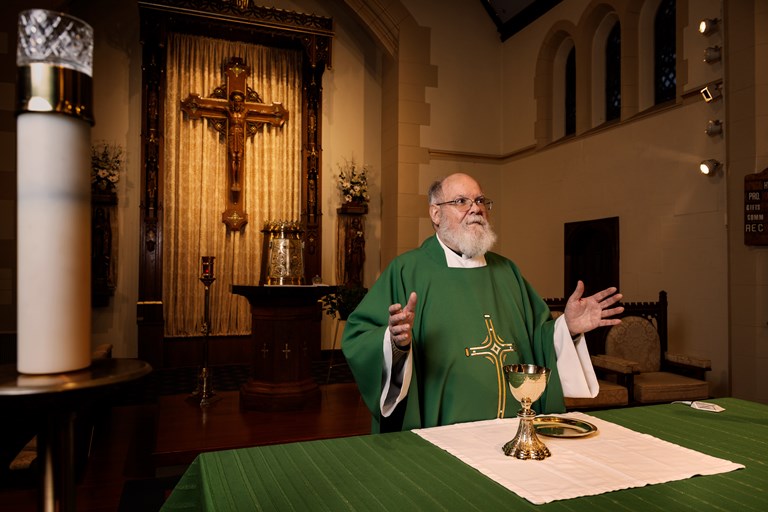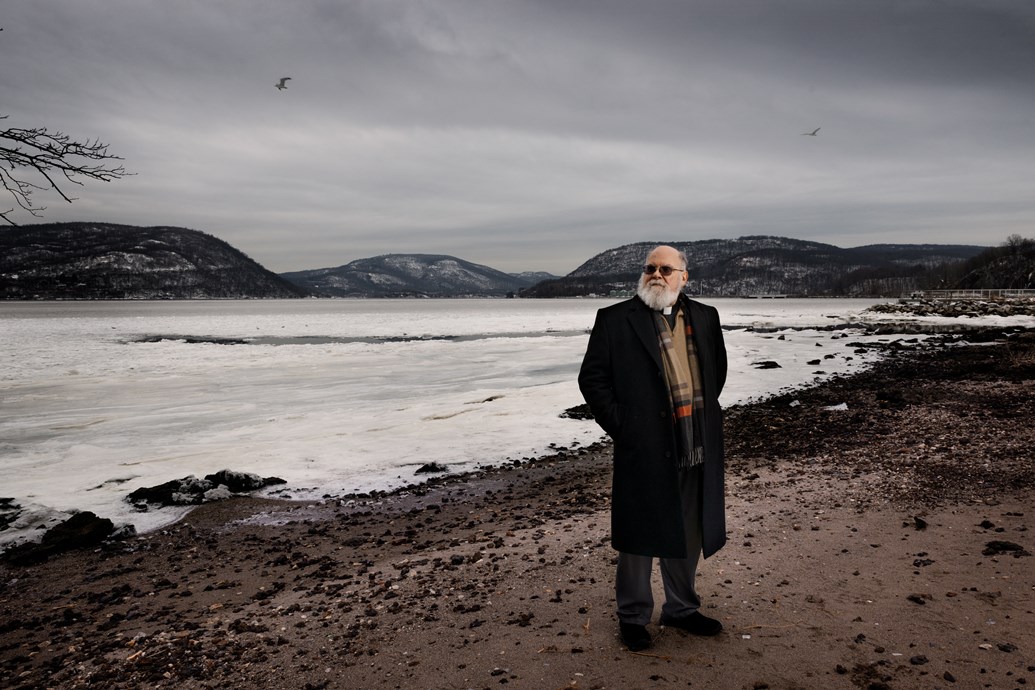The Priest Restoring Trust in the Catholic Church — by Exposing Its Sins
By Nick Fouriezos
“I’m not sure people understand how courageous Ron was in coming forward,” says Bob Hoatson, a former New Jersey priest who was suspended from his duties after creating a victims organization. “This was clearly the most powerful archdiocese in the country, maybe in the world.” That was in the mid-1990s, and the incident led to Lemmert being ostracized, ridiculed and branded as a troublemaker. But Lemmert has been vindicated since, as the Catholic sex abuse scandal and its global cover-up has come to light, beginning with the groundbreaking Boston Globe investigation in 2002 and continuing with revelations such as the Pennsylvania grand jury report released last summer. The scandals have played a role in America’s declining number of self-identified Catholics (from 59.1 million in 2010 to 58.6 million in 2016) and slipping Mass attendance. Last week, Pope Francis acknowledged for the first time the persistent problem of priests sexually abusing nuns. Lemmert says the revelations aren’t surprising. “It’s like nuns are second-class citizens and that’s a scandal in itself, the way they have been treated,” he says. Later this month at the Vatican, the pope is staging an unprecedented four-day sex abuse prevention summit for bishops from around the world, a major attempt to restore trust in the church. “People in the past would trust anybody with a collar,” Lemmert says. “Now people are discovering that they can’t do that. You never know if the person is celibate or not, a true servant of God or a servant of the devil.” While plenty of reformers have emerged from outside the church and within the pews, Lemmert stands out as one of the most vocal men of the cloth to demand accountability. He is a co-founder and leader of the Catholic Whistleblowers, a network of nearly a dozen advocates (mostly current and former clergy members) that works to bring abusers to justice and pass laws to better protect victims. “The Prophet Ezekiel talks about bad shepherds in his time, who led the flock astray,” Lemmert says. “I think that has happened in the church. A lot of people have left because they are so angry. And we need to clean up the act.” It’s on quiet Mondays like this one that they do their holy work. Sitting in a living room dotted with religious iconography from such far-flung places as the Dominican Republic and Rwanda, Lemmert dials into a Whistleblowers conference call to discuss the dozens of court cases, investigations and legislative proceedings they are tracking. Jim Connell, a former Milwaukee-area priest, is trying to drum up press for a mandatory reporting bill. Helen Rainforth, the mother of an abuse victim, reports that a number of cases have gone dormant lately. The biggest news comes from Hoatson, a victim of clergy abuse himself, who says the Child Victims Act is expected to pass through the New York state Legislature. (The bill now awaits Gov. Andrew Cuomo’s signature.) It addresses one of the major issues victims face by retroactively removing the statute of limitations for abuse during a one-year “look-back” period. And with states from New Jersey to Georgia considering similar laws, a chain reaction could take place across the country. “We could have a great couple of victories in the coming months,” Hoatson says.
Opposition for such measures has come from state school superintendents and the Catholic Church, which says opening up decades-old cases would be punitive and threaten bankruptcy to any major institution that works with children. “The emphasis must be on helping [victims] heal, not breaking government, educational, health, welfare or religious organizations and institutions,” New York Cardinal Timothy Dolan, the nation’s most powerful archbishop, wrote in an op-ed for the Daily News while saying the church supports eliminating the statute of limitations for future cases. And most abuse experts agree that Catholic priests, despite dominating headlines, don’t sexually abuse at a higher rate than other men in occupations that deal with children. When the Whistleblowers was founded in 2012, Bill Donohue, president of the arch-conservative Catholic League, dismissed its work because he considered priest abuse a “homosexual scandal” that lasted from the mid-1960s to the late ’80s. “If someone said in 1955 that we must do something about polio, just after the approval of the Salk vaccine, we’d think him nuts,” Donohue said then, though he declined to comment recently. Lemmert agrees that there has been progress. But it’s targeted. “The priests are held accountable, but the bishops aren’t,” he says, noting that the charters to address sex abuse have ignored the bishops’ roles in transferring known abusers. In the past year alone, former Washington, D.C., Cardinal Donald Wuerl was scrutinized for not publicly revealing the abuse by one of his predecessors, Theodore McCarrick, who has been accused of preying on other priests. “The people who commit these crimes are sick individuals,” Lemmert says. “The people covering up for them are diabolical.” Although he likes Pope Francis’ rhetoric, Lemmert remains skeptical: “I’m just very disappointed in what he has not yet done.” Lemmert considered leaving the priesthood after being banned from Holy Name. He spent the next 16 years as chaplain for the maximum security prison Sing Sing Correctional Facility, a post that could have been seen as a punishment but for him was a joy. Like his hero St. Francis of Assisi, who embraced lepers, Lemmert saw the face of God in society’s outcasts. That type of mentality allows him to say the abuse scandals have actually strengthened his faith because they have made him realize that while the church is full of faulty administrators, its real body is the people he is called to serve. “I’ve always been a good shepherd,” he says, “and I’m not going to abandon the flock when they need me the most.” The 71-year-old is looking forward to retiring from the archdiocese in four years — so that he can throw even more of himself into the work of the Whistleblowers.
|
.
Any original material on these pages is copyright © BishopAccountability.org 2004. Reproduce freely with attribution.

